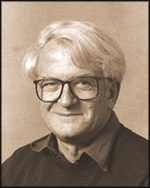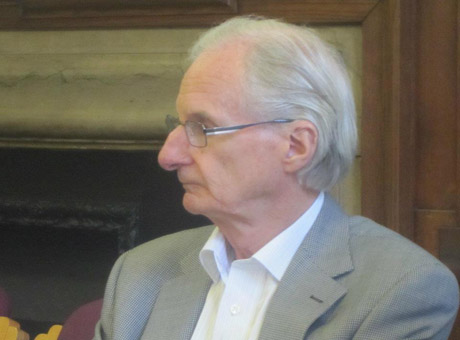Recent News and Reflections
Michael Safier 1941-2024: an Appreciation (Caren Levy, Adriana Allen, Giovanna Astolfo)
Submitted by frankie on Fri, 2024-11-29 13:22.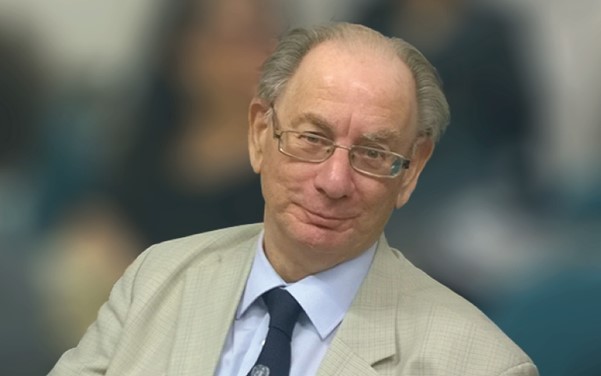
Michael Safier, who was a DPU colleague and a founder-member of DPU-Associates since 2008, died on 9 November 2024 at the age of 83.
He was a pivotal figure in urban planning and a dedicated scholar, teacher, and practitioner in the field of development planning. On graduating with a BSc in ‘Economics’ from the London School of Economics and Political Science (LSE) in 1967, He was appointed a Lecturer in Economics at Makerere University in Kampala, Uganda, for one year, following which he spent two years as a Research Fellow at The Makerere Institute of Social Research, Kampala, He then returned to London, where, in 1970, he joined teaching staff of the Architectural Association (AA) Department of Development and Tropical Studies. In 1971, together with his colleagues, he joined the academic staff of the newly founded Development Planning Unit (DPU), academically attached to, the then, School of Environmental Studies in University College London (UCL). He taught at the DPU from 1972 until his retirement in 2006. Throughout his career in the DPU, he championed ‘urban development planning’ and ‘cosmopolitan development’ in Diploma and Certificate course modules, in Master's Degree programmes and in his supervision of PhD candidates. Early in his career in the DPU, he devised a major research project on ‘Planned urban growth’ that he directed with a research team, in Lusaka, Zambia from 1972-1974. Thus, he was central to every aspect of the DPU for some 35 years.
New book (2024) 'Urban Social Housing' (Patrick Wakely)
Submitted by frankie on Fri, 2024-02-16 10:44. Wakely 2022
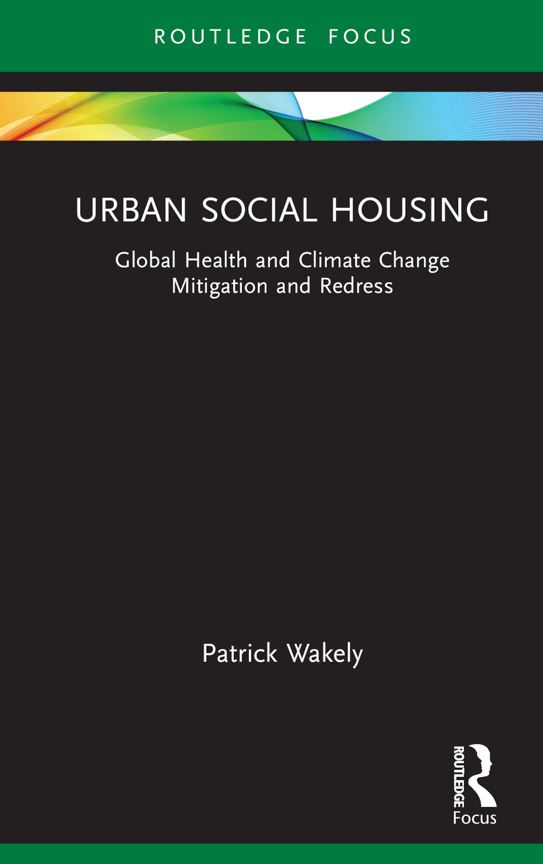
|
Che and Tania's socks: Reflections of an incorporated wife - Caroline Moser (2023)
Submitted by frankie on Thu, 2023-11-16 16:51. Caroline MoserABSTRACT
John Turner, 1927- 2023: An Appreciation (Geoffrey Payne)
Submitted by frankie on Fri, 2023-10-06 14:20. Geoffrey Payne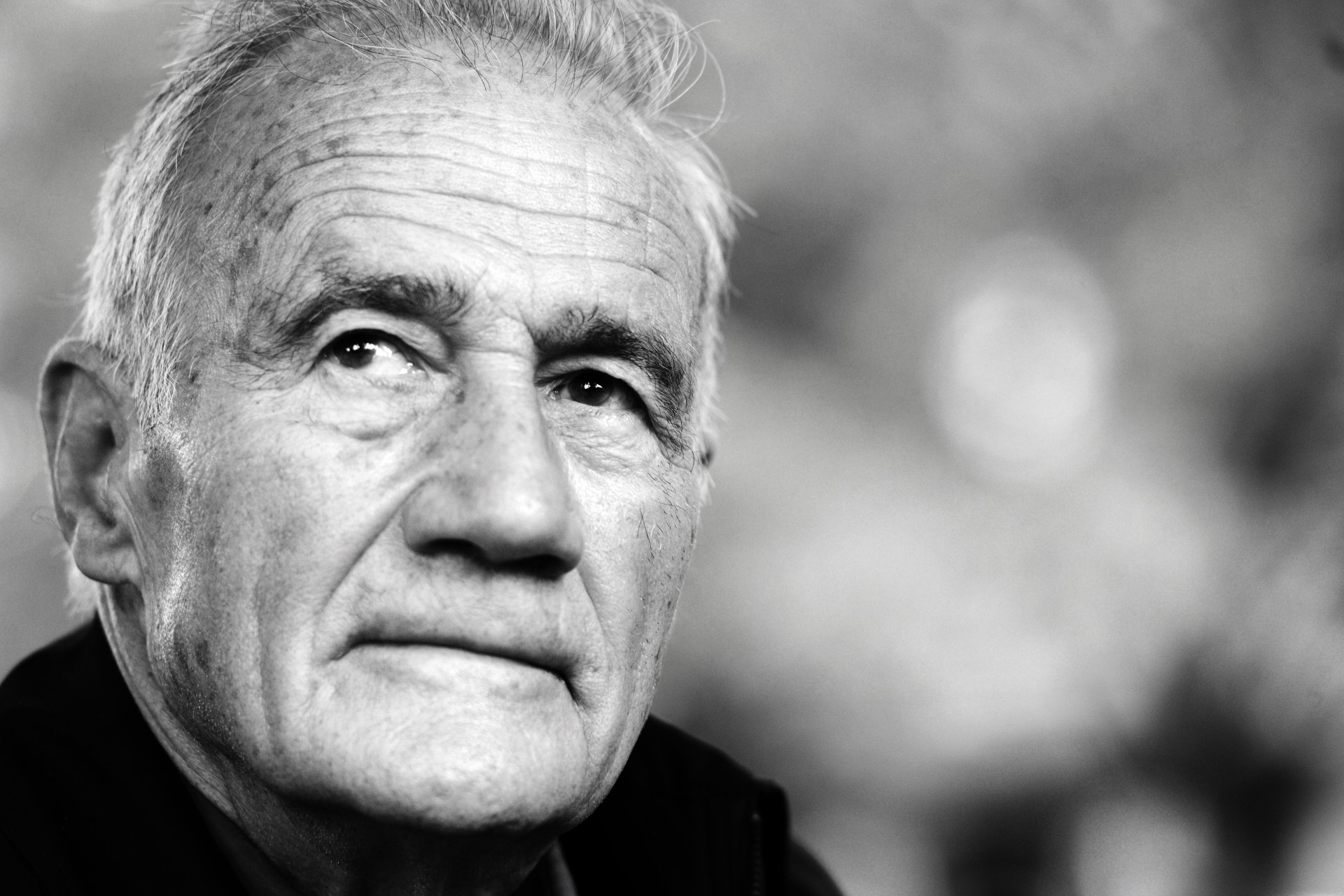
Architect impressed by urban squatter settlements in Peru who then set about persuading the wider world of their value.
In the 1950s and 60s John Turner, who has died aged 96, addressed the housing challenges faced by members of rural communities in Peru when they migrated to urban areas in search of a better life. Official planning and design approaches were neither appropriate nor affordable to such people, and Turner was immensely impressed by their resourcefulness in creating their own housing developments and even complete neighbourhoods. Turner’s writings, as John FC Turner, presented Peru’s urban squatter settlements – barriadas – to a global audience as not a problem but a resource.
Ronaldo Ramirez 1934-2022: an Appreciation (Patrick Wakely)
Submitted by frankie on Wed, 2022-12-28 13:01. Wakely 2022Ronaldo, a Senior Lecturer in The DPU for 32 years (1974-2006), passed away peacefully on 17 December 2022 at the age of 88.
Podcast (2022) 'The power of ideas and metaphors in international development policy' (Desmond McNeill)
Submitted by frankie on Fri, 2022-05-13 08:52. McNeill 2022SUMMARY
In a podcast for In Pursuit of Development on 22nd March 2022, Professors Dan Banik (the Host) and Desmond McNeill discuss the role and influence of ideas and metaphors in development, the contradictions of foreign aid and the potential for financing global public goods.
NOTES
New book (2022) ’Somewhere to Live: Rising to the Global Urban Land and Housing Challenge' (Geoffrey Payne)
Submitted by frankie on Fri, 2022-03-04 12:44. Geoffrey Payne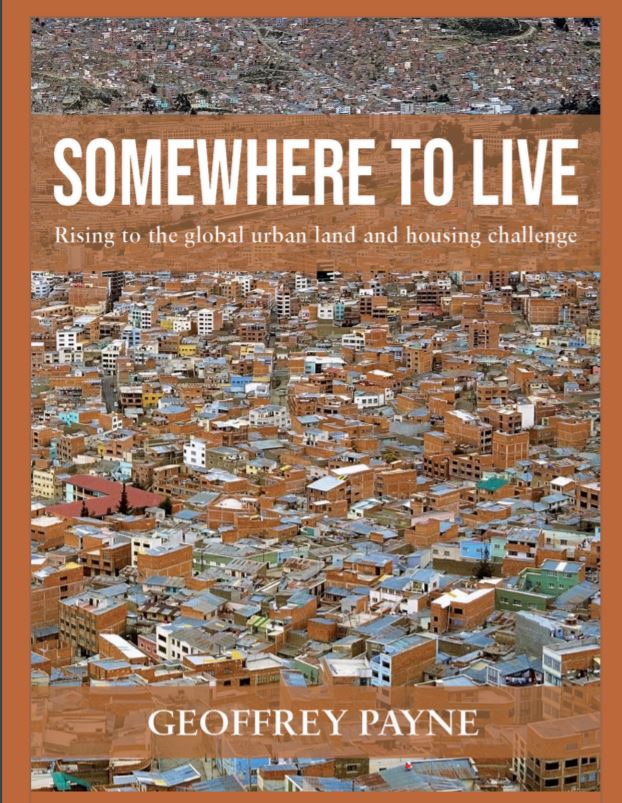
New book (2022) ‘Compromise Planning: A Theoretical Approach from a Distant Corner of Europe’ (Louis Wassenhoven)
Submitted by frankie on Fri, 2022-03-04 12:42. Louis Wassenhoven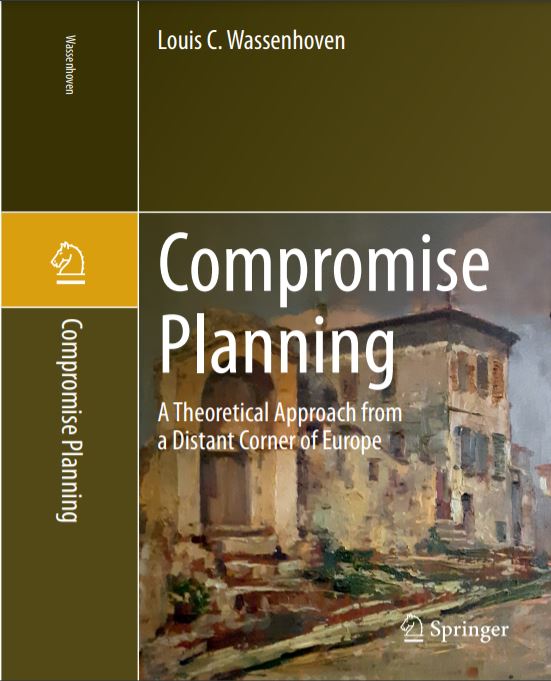
New Edition (2021): Vivienda en el Desarrollo Urbano: Experiencia y Aprendizaje (Patrick Wakely)
Submitted by frankie on Mon, 2021-11-15 09:48. Wakely 2022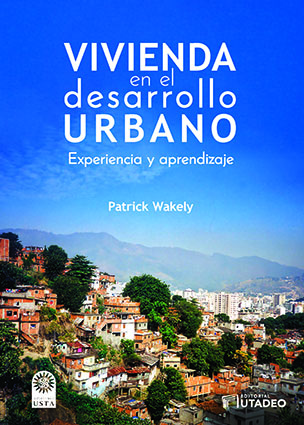
‘Vivienda en el Desarrollo Urbano: Experiencia y Aprendizaje’
Urban Issues in Pakistan: Interview (Babar Mumtaz)
Submitted by frankie on Sat, 2021-01-09 11:34. Babar MumtazReproduced from ‘Pakistan Institute of Development Economics: Cities and Urbanisation, P&R Issue, Interviews', Jan. 2021
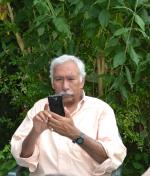
Babar Khan Mumtaz
is an economist and architect, formerly Director of the DPU, University College London. He has worked for governments and international agencies in Africa, Middle East, South Asia and the South Pacific for over 45 years.New Book (2020): 'Fetishism and the Theory of Value; Reassessing Marx in the 21st Century' (Desmond McNeill)
Submitted by frankie on Tue, 2020-12-29 17:51. McNeill 2022
"Fetishism and the Theory of Value; Reassessing Marx in the 21st Century”
Palgrave MacMillan History of Economic Thought Series, Palgrave/Macmillan, London, UK
New Book (2019): 'Housing in Developing Cities: Experience and Lessons' (Patrick Wakely)
Submitted by frankie on Mon, 2018-04-16 17:08. Wakely 2022
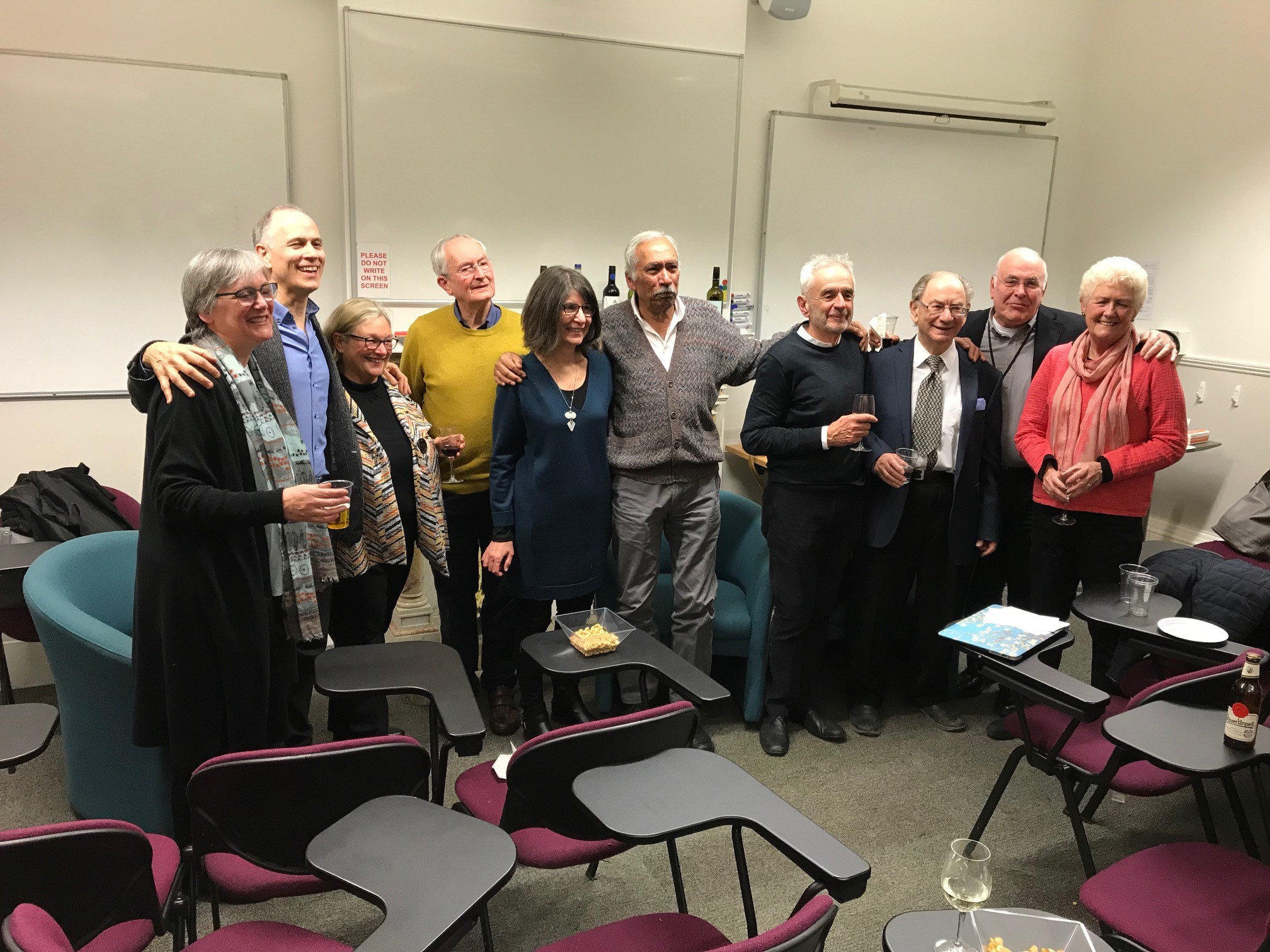
|
Adrian Atkinson 1943-2016: an Appreciation (Patrick Wakely)
Submitted by frankie on Sun, 2017-02-05 10:14. Wakely 2022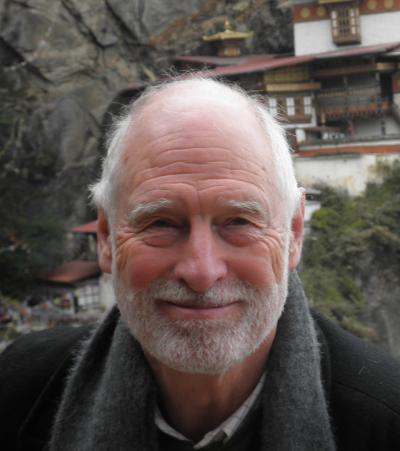
Participatory Urban Housing Strategies: Two Case Studies - Brazil & Sri Lanka (Patrick Wakely)Submitted by frankie on Wed, 2016-02-24 23:07. Wakely 2022This paper illustrates Chapter 4 of DPU Working Paper No:163/60: Urban Public Housing Strategies in Developing Countries: Whence and Whither Paradigms, Policies, Programmes and Projects1 that should be read together with it (DPU60 WP163) FOREWORD The paper reviews two prominent, but very different, examples of government support to participatory enabling (‘self-help’) approaches to the procurement of affordable urban housing, services and infrastructure by the lowest income groups, both of which are well known to the DPU, which was closely involved with both of them: The Transition Movement (Adrian Atkinson)Submitted by frankie on Tue, 2016-02-02 22:24.Nigel Harris earlier on this website analysed what he saw – and many others also have provided analyses (notably Negri and Hardt’s notion of ‘Empire’) – of the ‘transition’ of the global economy (and maybe of life generally) over the past few decades from a series of national and regional economies to a global economic machine that States (or anyone else) have the power or the political will to control and that seems to have a momentum and direction all of its own. All national governments and, indeed, the global population, have been captured in the flow of globalization that we might say is both economic and more broadly (problematically) a way of understanding what life should be all about, as a result of the opinions and more deeply the lifestyle visions forged and disseminated by the modern media (Atkinson, 2014). Patrick McAuslan MBE, 1937 – 2014: An Appreciation (Edesio Fernandes)Submitted by frankie on Thu, 2014-01-23 00:09. Edesio Fernandes
Following an inspiring life fully committed to the promotion of land reform, social justice, legal education and institutional modernisation in developing and urbanising countries, Professor Patrick McAuslan passed away on 11 January 2014, after a short illness. Through his inseparable academic and policy-making work, he left a unique legacy. On Economic Globalization, Neo-Liberalism and the Nature of the Period – Discussion Notes (Nigel Harris)Submitted by frankie on Sun, 2013-01-27 01:51. Nigel HarrisNigel Harris wrote that the charge of “imperialism” has served the Left for a very long time as a supreme accusation against the political order of the world. The term implies not that strong States invariably try to bully weaker ones, nor that “imperialism” is just a fancy name for Washington, but that there is a world political order embodying systemic relations of domination. However, while once there might have been relatively robust theoretical underpinnings to this approach (in Lenin's popularization of the combination of Hobson and Hilferding1), the thesis has long since been shown to be doubtful2. On the other hand, imperialism's opposite, “national self-determination”, seems equally of doubtful validity in conditions of economic globalization. Indeed, these theoretical difficulties become even sharper when it is recognized that Washington, the supposed global hegemon, is itself trapped in an apparently insoluble crisis in the global economic order – the political agenda comes apart from the economic. What follows are some notes for discussion on an alternative approach to characterizing the world order. Urban social reconstruction after oil (Adrian Atkinson)Submitted by frankie on Sun, 2013-01-27 00:13.In 2012, Adrian Atkinson published an article entitled "Urban social reconstruction after oil" in which he started with an exposé of what is being done currently to alleviate urban problems under present circumstances, focusing predominantly on the South. He then went on to expand a little on the nature of the challenges ahead before exploring ‘solutions’ that are appropriate to the real future that can be expected, post oil. The analysis here followed on from earlier expositions and speculations that he conducted from 2006 to 2008, published in a series of papers under the general title of Cities after oil (Atkinson 2007b, 2007c, 2008). This article took some of the key arguments of his previous analysis a step further. You Can't Always Get What You Want (Michael Mattingly)Submitted by frankie on Fri, 2010-09-17 21:19. Michael Mattingly | Michael Mattingly (2012)A response by Michael Mattingly to the terms of reference provided by an international organisation for the design and delivery of an integrated training package on land governance, gender, and grassroots mechanisms. The Future of Local Economic Development (Adrian Atkinson)Submitted by frankie on Wed, 2010-06-30 21:14.Drawing on his experience and recent work with ILO, Adrian Atkinson reviews the underlying issues of local economic development (LED) in urban and peri-urban areas and makes the case for a re-thinking of support to local enterprise and employment, linking them directly to the macro-economic crisis approaching many cities as a result of ‘peak oil’. Ordinary Families, Extraordinary Lives: Assets and Poverty Reduction in Guayaquil 1978-2004 (Caroline Moser)Submitted by frankie on Fri, 2010-03-19 09:45. Caroline MoserCaroline Moser has published reflections and analysis of a quarter of a century’s longitudinal research on the struggle out of poverty of three generations of families’ who started life squatting over tidal mangrove swamps in Guayaquil, Ecuador. [A review article from ‘The Guardian’ (UK national newspaper) and extract from the book’s Prologue]. Goodbye to Natural Resource Based Livelihoods? Crossing the Rural/Urban Divide (Michael Mattingly)Submitted by frankie on Sat, 2010-03-06 03:19. Michael Mattingly | Michael Mattingly (2012)Continuing to manage natural resources helps peri-urban people to shift from rural to city-based livelihoods. Natural resource management can continue to be important to rural people while an expanding city or town engulfs them. Michael Mattingly and Pam Gregory present this message in the October 2009 issue of Local Environment (Vol. 4, No. 9). The article arose out of Gregory's analysis and synthesis of 10 years of research on peri-urban livelihoods that was financed by the Natural Resources Systems Programme of the UK's Department for International Development and monitored by Michael Mattingly on behalf of the DPU. Emergency Lex - and other improbable tales from the law zone (Patrick McAuslan)Submitted by frankie on Sat, 2009-07-18 20:59.Before his untimely death in February 2014 (see Patrick McAuslan MBE, 1937 – 2014: an Appreciation (by Edesio Fernandes) Professor McAuslan reflected on some of the challenges and pitfalls involved in acting as a consultant in the field of law and development, with particular reference to his area of expertise of land. Informal Settlements in Aleppo, Syria: developing a city-wide policy and implementation strategy (Patrick Wakely)Submitted by frankie on Fri, 2009-06-19 21:12. Wakely 2022In 2008, Patrick Wakely started a part-time contract with the GTZ Syrian-German Sustainable Urban Development Programme to help develop a municipal policy and implementation strategy for informal settlements (IS) in Aleppo. This is linked with the development of a broader-based City Development Strategy (CDS) also being assisted by GTZ, (German Agency for Development Co-operation, the implementing agency of the German Ministry for Economic Co-operation), and the Cities Alliance. The early stages of this on-going programme have already raised interesting issues around government, governance, decentralisation and participation in the context of a country in transition to a social market economy and administration at the national, municipal and local levels. Making land work for the losers: policy responses to the urbanisation of rural livelihoods (Michael Mattingly)Submitted by frankie on Sun, 2009-05-31 19:20. Michael Mattingly | Michael Mattingly (2012)In International Development Planning Review (vol 31, no 1), Michael Mattingly has speculated on how land policy might reduce the negative impacts of cities on the livelihoods of peri-urban farmers who tend to be poor and especially vulnerable to change. Using the findings of 10 years of research on peri-urban livelihoods in developing countries, financed by the Natural Resources Systems Programme of the UK Government Department for International Development which he advised, he assembled evidence of how land can figure in the changes to rural livelihoods. Planning support to the Afghan Ministry of Urban Development for the safeguard & regeneration of urban heritage (Anna Soave)Submitted by frankie on Fri, 2009-04-10 12:04. Anna SoaveIn November 2008, Anna Soave and Mona Khechen (DPU 2000) completed a 6-months assignment for the Aga Khan Trust for Culture / Historic Cities Programme (AKTC/HCP), funded by the Italian Trust Fund for Culture and Sustainable Development (ITFCSD), to assist the World Bank in its urban heritage-related activities in Afghanistan. New book on multilateral organisations (Desmond McNeill)Submitted by frankie on Fri, 2009-04-10 12:00. McNeill 2022Desmond McNeill has recently published a new book, co-authored with Asun Lera St Clair, critically assessing what multilateral organisations say and do in the realm of ethics and human rights. (Global Poverty, Ethics and Human Rights: the role of multilateral organisations, 2009). Formalising informal areas in Greater Cairo: management training for senior Governorate officials (P Wakely, B Mumtaz, S Meikle)Submitted by frankie on Fri, 2009-04-10 11:59. Babar Mumtaz | Sheilah Meikle | Wakely 2022In February 2009, Patrick Wakely, Babar Mumtaz, and Sheilah Meikle conducted a series of workshops on the decentralisation of the planning, management and upgrading of informal settlements for some 40 professionals and technicians from four of the five Governorates of Greater Cairo. They also ran a parallel course of seminars for the staff of the GTZ (German Technical Cooperation) Participatory Development Programme in Urban Areas (PDP) in Egypt. Both events raised interesting issues concerning the implementation of national decentralisation policies and strategies for participation. Neighbourhood Planning in Kabul’s old city (Anna Soave)Submitted by frankie on Fri, 2009-04-10 11:15. Anna SoaveSeconded in 2003 by the DPU to the Aga Khan Trust for Culture / Historic Cities Programme (AKTC/HCP), Anna Soave has been working in Kabul for 5 years as an urban planner engaged in hands-on planning in the low-income and war-affected areas of the Old City, in support of AKTC’s on-going rehabilitation programme in Afghanistan. Successful land delivery for low income housing in Iran (Michael Mattingly)Submitted by frankie on Sat, 2008-09-06 08:57. Michael Mattingly | Michael Mattingly (2012)Michael Mattingly, Hamid Majedi (DPU PhD 1996) and Ramin Keivani (DPU PhD 1993) have recently published an account in Urban Studies of Iran's little-known experience in improving access to land for housing through large scale public land banking. Using the research of Hamid Majedi, the article examines the first 10 years of the implementation of a policy that adds to the debate surrounding the widely accepted notion of market-enabling in order to improve low-income housing provision in developing countries. This action of the Government of Iran effectively provided an alternative to land markets that have hitherto failed to serve low-income and even lower middle income households. Making the project research: doing-by-learning with expertise (Michael Mattingly)Submitted by frankie on Fri, 2008-04-18 21:44. Michael Mattingly (2012)Michael Mattingly hopes to generate a debate by arguing in the latest issue of Public Administration and Development that, if a development project is destined to reach only a selection of its intended beneficiaries or to give them only momentary or uncertain benefits, there is a strong rationale for making it recasting it as a research project from which lessons can be learnt from the impact that it may not otherwise have. New Strategies for Savings and Loans Provision for Low-income Households (Diana Mitlin)Submitted by frankie on Sat, 2008-01-12 08:04. Diana MitlinDiana Mitlin, who works at IIED, has been collaborating with Slum/Shack Dwellers International (SDI) to understand the contribution of Urban Poor Funds to SDI’s own work and the wider issue of financing shelter improvements. Reflections on project preparation: ADB Secondary Cities Project, Pakistan (Babar Mumtaz)Submitted by frankie on Mon, 2007-11-05 13:13. Babar MumtazOver the last year Babar Mumtaz has been the Team Leader and Institutional Development Specialist of the proposed ADB (Asian Development Bank) Sindh Secondary Cities Improvement Project, which has raised several interesting and complicated political issues, which he discusses here. Urban development support in Somalia (Katja Schäfer)Submitted by frankie on Fri, 2007-11-02 19:27. Katja SchaferSince February 2006, Katja Schäfer has been working with UN-HABITAT’s Somali Urban Development Programme [SUDP]1 as an Urban Planner in the Somaliland and Puntland regions, giving technical and planning support to a number of Local Authorities through on-the-job training on small strategic projects as a catalyst for wider urban development. Fragile states and post conflict peace building (Keith Sargent)Submitted by frankie on Tue, 2007-10-30 17:16. Keith SargentOver the last ten years Keith Sargent has been increasingly involved in the post-conflict reconstruction of fragile states. This has led him to undertake research at the Desmond Tutu Centre for War and Peace Studies. Here he describes some of the issues that he has been confronting. Urban Livelihoods in Afghanistan (Jo Beall)Submitted by frankie on Thu, 2007-10-11 20:03. Beall 2023Two major studies led by Jo Beall for the Afghanistan Research and Evaluation Unit (AREU)1 were among the first to highlight the unprecedented and largely unplanned urbanisation that now characterises the country, as well as the realities of urban poverty and vulnerability for growing numbers of Afghans. Together the reports draw on two years of research conducted in Kabul, Heart, Jalalabad, Mazar-i-Sharif and Pul-i-Khumri, with the second study tracking the life paths of poor urban households over an entire year. Economic management training for North Korea (Keith Sargent)Submitted by frankie on Mon, 2007-07-09 20:22. Keith SargentIn late May 2006, Keith Sargent was commissioned by the UN Department for Economic and Social Affairs (UN DESA) to advise on the economic management training requirements for government officials and academia in North Korea. This brief note highlights the achievements, frustrations and ultimate demise of an initiative that aimed to address a few of the real development needs of North Korea and transcend the rhetoric of the Six Party Talks. Regional planning in Vietnam (Adrian Atkinson)Submitted by frankie on Tue, 2007-07-03 16:37.In April-May 2007, Adrian Atkinson was commissioned directly by the Ministry of Construction to work with the Southern Sub-Institute for Urban and Rural Planning on a kind of mid-term evaluation of the draft plan for Ho Chi Minh City and six surrounding provinces and to recommend adjustments in methodology or content that I felt could improve the plan. The input was two months long. Afghanistan urban capacity building strategy (Patrick Wakely)Submitted by frankie on Thu, 2007-04-05 02:22. Wakely 2022In March 2007, Patrick Wakely undertook a consultancy for UN-Habitat to advise on building the capacity of the Ministry of Urban Development to Build the Capacity of municipalities in Afghanistan. UNDP Mongolia (Nadia Taher)Submitted by anna on Mon, 2007-01-15 17:08. Nadia TaherIn 2006 Nadia Taher undertook a mission for UNDP Mongolia to contribute to the setting up of a gender mainstream strategy. CDS in Iran (Nigel Harris)Submitted by anna on Wed, 2006-12-20 11:33. Nigel HarrisNigel Harris has been working with the World Bank developing the ToR for City Development Strategies (CDS) for three cities in Iran. |

